Learn
Engaged Learning & Innovative Teaching
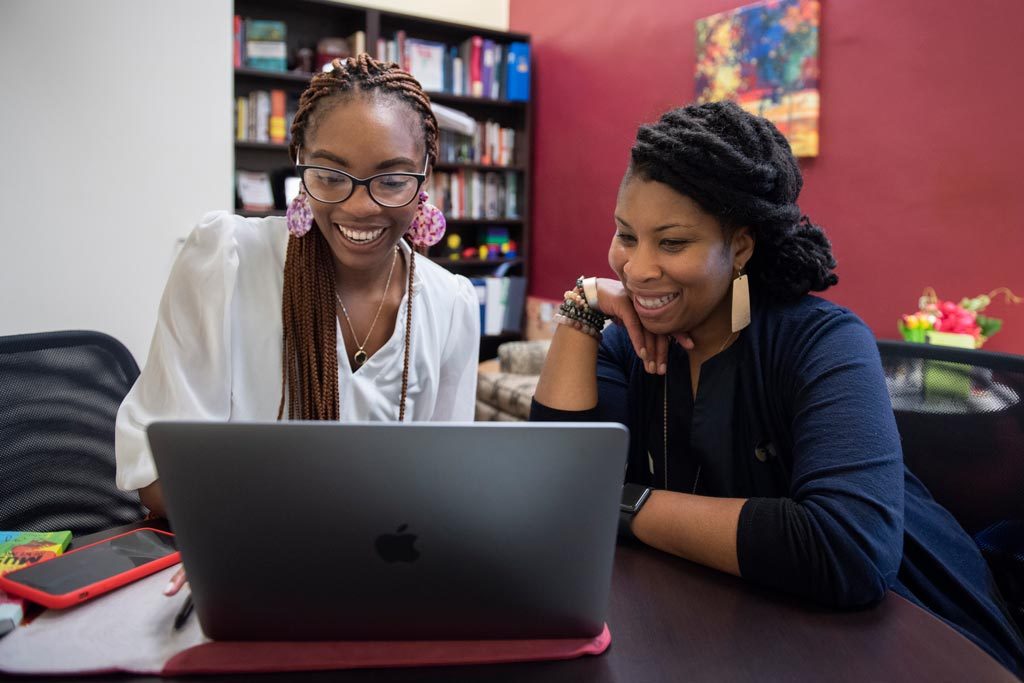
Deep research, rich mentoring shine in Elon College
Engaged and curious students. Dedicated professors offering expert guidance. Research projects that innovate, enliven and captivate. These are the hallmarks of mentored undergraduate research throughout the college, promoting greater understanding and inquiry of the world.
In April, 50 of the 59 Elon University students who presented at the National Conference on Undergraduate Research were enrolled in Elon College majors. At the Spring Undergraduate Research Forum, 80% of projects accepted for poster sessions and presentations originated from mentored research in the college. Of the 188 undergraduate research projects presented from the college:
- 88 were in STEM programs
- 38 involved the Arts & Humanities
- 62 engaged the Social & Behavioral Sciences
Many undergraduates presented their research at national professional conferences. A number of these projects also garnered recognition from professional organizations and earned national attention, including:
- Lumen Scholar and psychology major Eukela Little ‘22 and Professor of Psychology Buffie Longmire-Avital received wide coverage regarding Little’s project “Strong, Black and Selfish: Reframing the Strong Black Woman Persona to Include Self-Care Through a Mobile Health Intervention.”
- Megan Casner ’22, mentored by Associate Professor of Sociology Alexis Franzese, presented at the North Carolina Sociological Association conference in March. Her paper, “Identity Expression Through the Use of Material Culture: What Do Your Laptop Stickers Say About You?”, won the NCSA’s Himes Outstanding Student Paper in Sociology Award.
- Nicholas Hom ’22, mentored by Associate Professor of Religious Studies Amy Allocco, shared his research, “Gods, Gurus, and Ghouls: Jain and Hindu Bhakti in Medieval Tamil Literature,” at the American Academy of Religion, Southeast Region. His paper was runner-up for the annual Albert Clark Award for best student essays in religion or theology at the undergraduate level and will be published in the Journal of Theta Alpha Kappa.
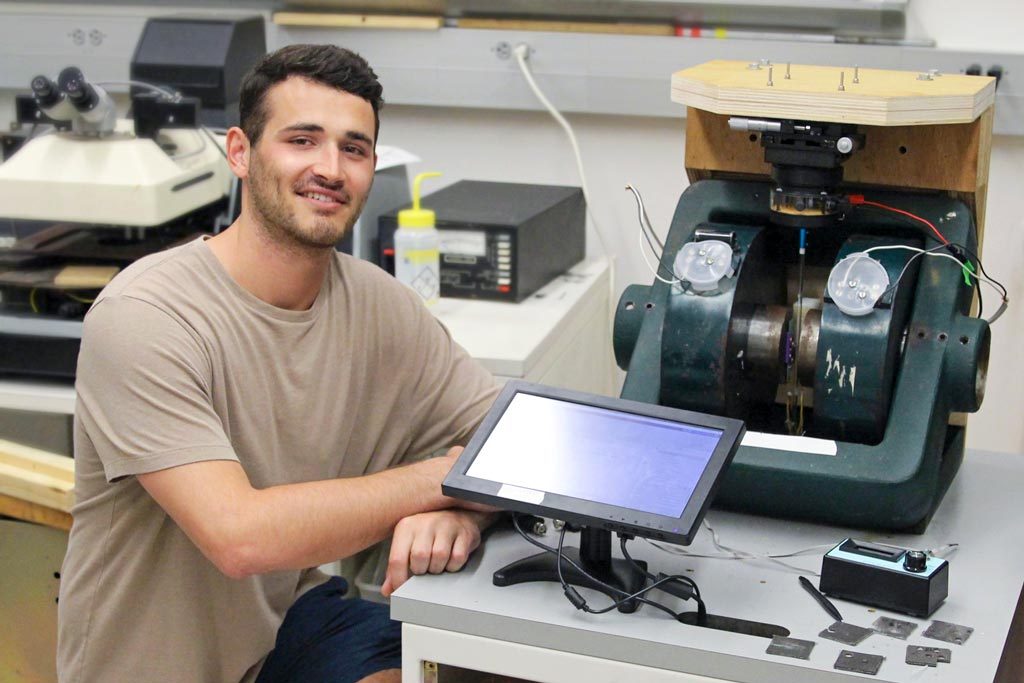
Bacogeorge ’22 engineers magnet that attracts physics research
Stratton Bacogeorge’s “downtime” at Elon was spent designing and building an automated vibrating-sample magnetometer under the mentorship of Professor of Physics Benjamin Evans. Evans tapped Bacogeorge for the project in his first year. By May of his senior year, the pair were running tests on a working magnetometer — a device that costs upwards of $150,000 to purchase but which they built for about $7,000. The device will further advance physics research on magnetic polymers in various fields including soft robots.
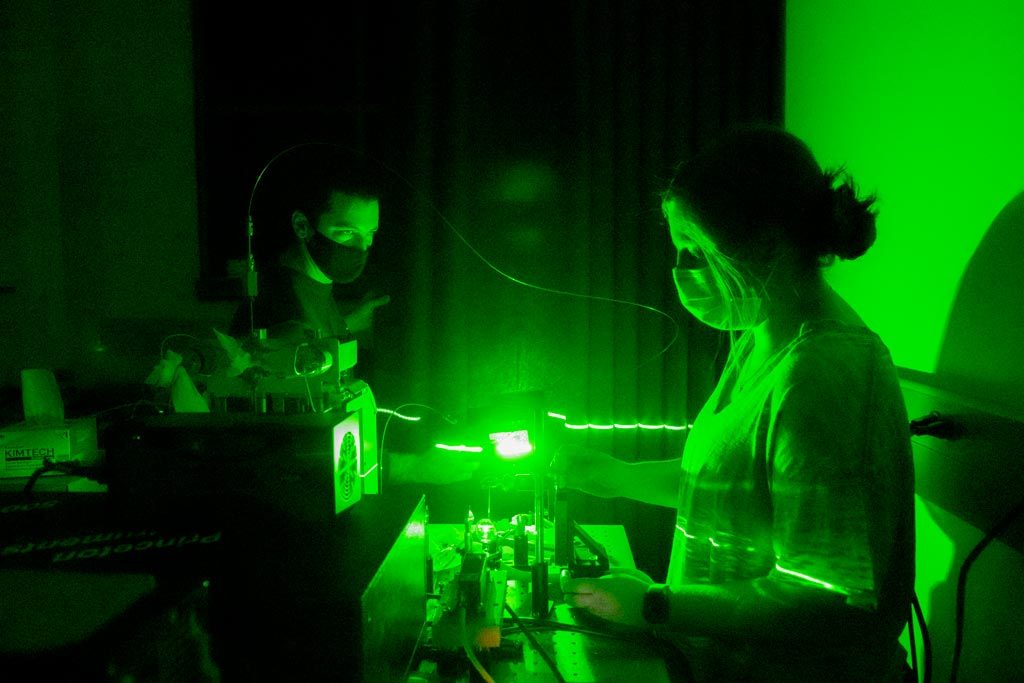
Sheinberg ’22 uses lasers to illuminate little-understood molecule
With Assistant Professor of Chemistry Anthony Rizzuto, Anna Sheinberg used laser spectroscopy to analyze aqueous carbonic acid — vital to maintaining pH levels in our blood but only recently discovered due to the molecule’s short lifespan. The research helps characterize the molecule, which could have implications for future medical treatment. In addition to research, Rizzuto and Sheinberg traveled to the University of California, Berkeley in summer 2021 to establish a research collaboration between Elon and the California campus, where Sheinberg trained graduate-level researchers in how to run spectroscopic experiments on micron-sized liquid droplets.
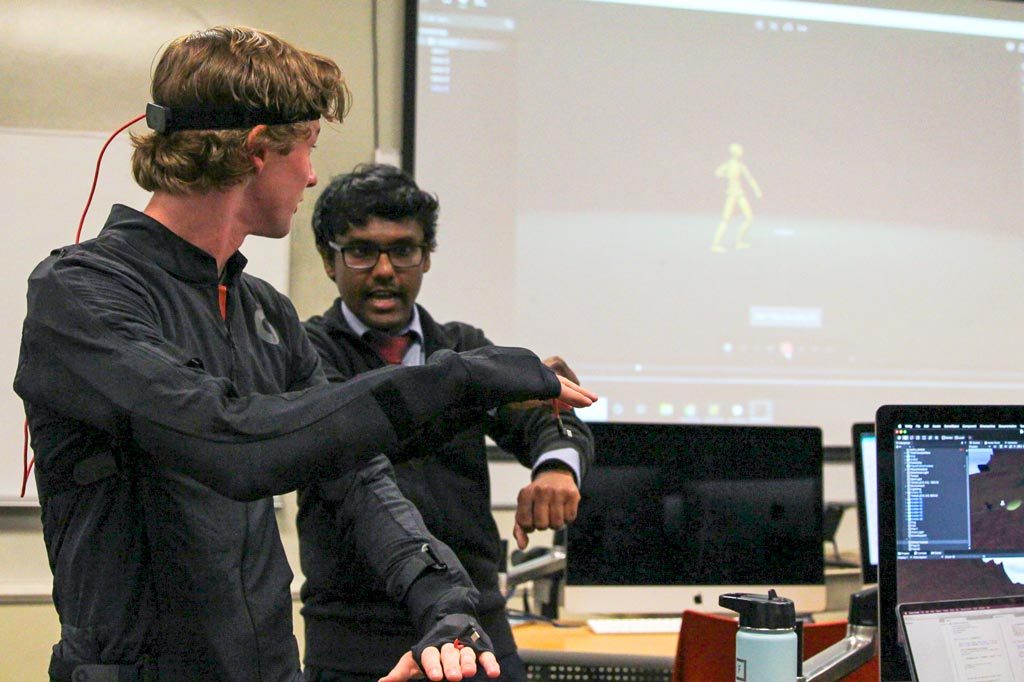
Elon’s game design minor releases first games
Eleven students in the game design minor capstone developed and published the program’s first games in spring 2022. Student teams designed three games: a first-person shooter-style game involving a janitor tasked with cleaning a haunted warehouse; a 2D single-player fantasy quest to restore music to the world; and a point-and-click style visual novel where the player interacts with items in a dystopian future. Students from English, communications, computer science and design majors collaborated on the games.
The interdisciplinary game design minor launched in 2019 and teaches students to study, design and implement computer games. In addition to a four-course foundation in game design, production and collaborative development, the program includes electives in art, music, English and communications.
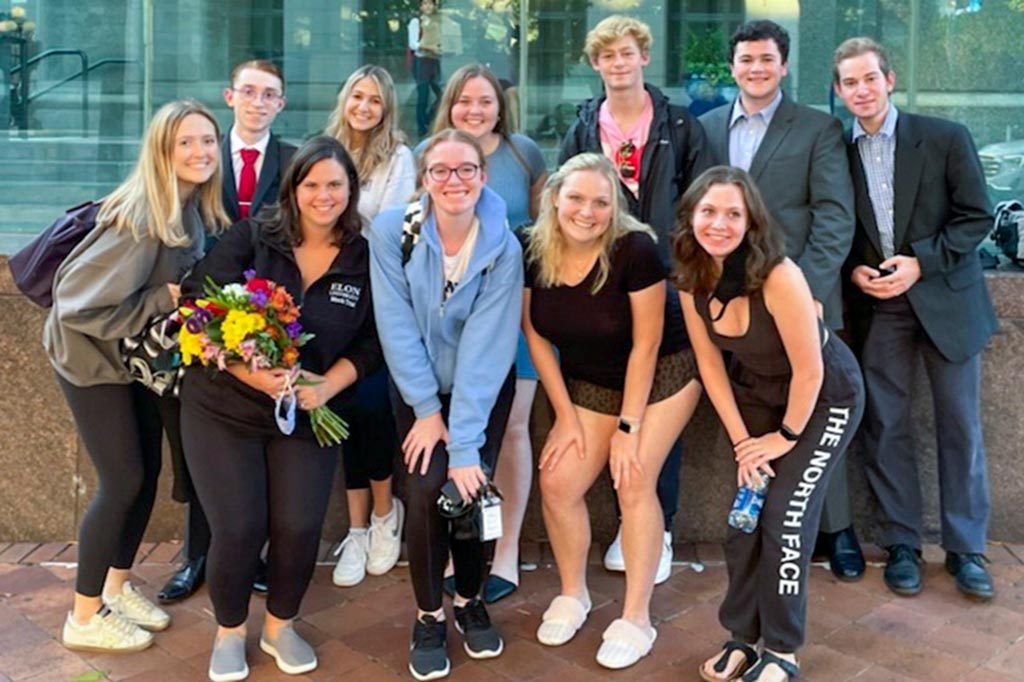
Mock Trial promotes professional skills, peer mentoring
The Elon Mock Trial Team earned a placement at the Opening Round Champion Series in Atlanta this spring, advancing from the regional tournament to the equivalent of the national quarter-finals. Blake Healey ’24 was recognized there with an Outstanding Attorney Award. The team practices several times each week, with students mentoring each other in case preparation and courtroom poise. Close mentoring by experienced teammates and Adjunct Assistant Professor of Law Kristen DelForge, the team’s coach, is what makes the team and individual members successful, Healey said.
Though many of the 20-plus team members are planning for legal careers, about half of the team is enrolled in majors unrelated to legal professions, like acting and biochemistry.
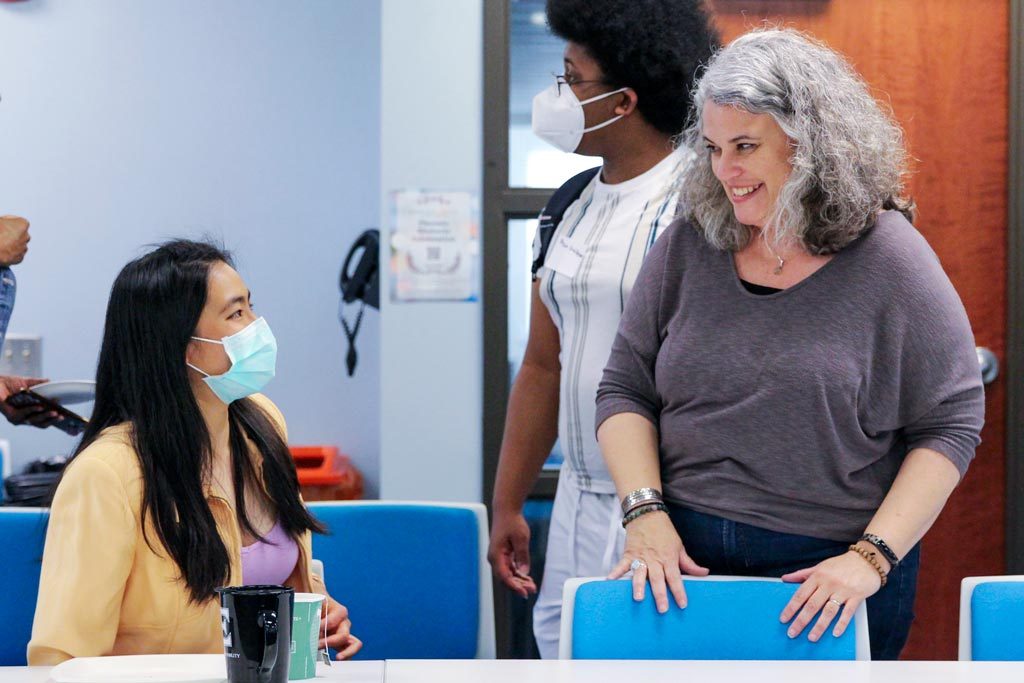
New ‘Phoenix Rhetorix’ journal anthologizes outstanding first-year writing
The inaugural edition of “Phoenix Rhetorix” was published in January and included eight pieces composed in 2020-21 by first-year students in the ENG 1100 Writing: Argument and Inquiry course. ENG 1100 is required as part of Elon’s First-Year Foundations curriculum and is taken by nearly 1,500 undergraduates each year. The online journal celebrates exceptional writing by first-year Elon students and emphasizes the impact storytelling has on the world.
Faculty or students themselves can nominate pieces written in the first-year course. A team of student and faculty editors works with authors to hone and revise pieces for maximum impact. In 2023, the second journal will celebrate “What’s Next?” with themes of diversity, equity and inclusion, and writing that shares untold stories, counters misinformation and bridges divisions.
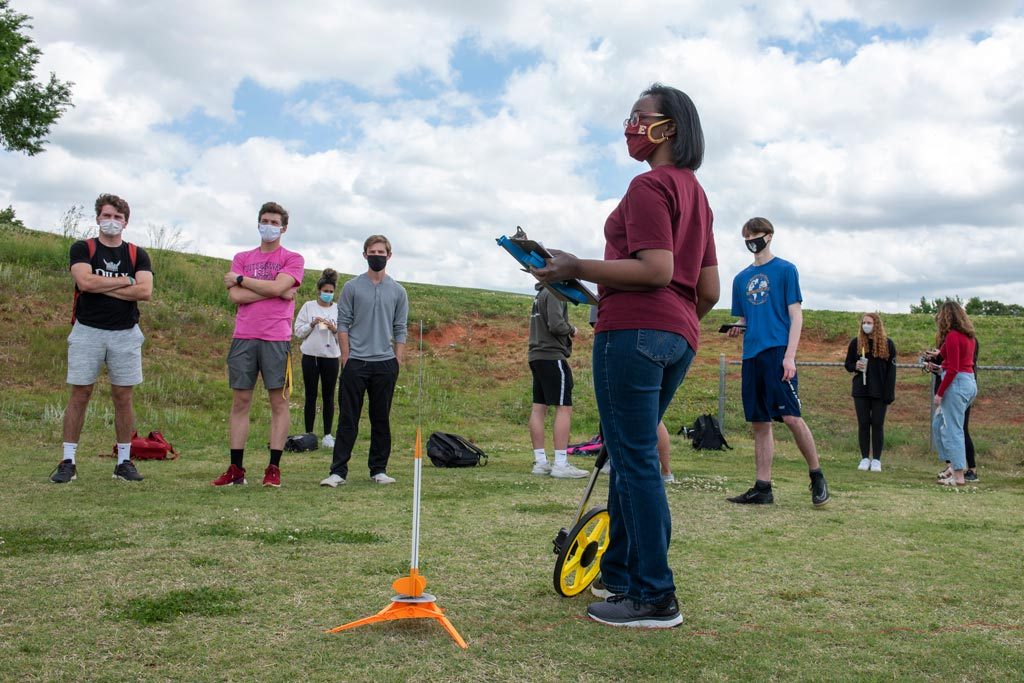
Hargrove-Leak named Engineering Unleashed Fellow
The Kern Entrepreneurial Engineering Network named Associate Professor of Engineering Sirena Hargrove-Leak a 2021 Engineering Unleashed Fellow. Hargrove-Leak was one of 27 fellows selected from higher education institutions across the U.S. and will use the fellowship to advance creativity and maker skills in engineering courses at colleges nationwide.
Recognition stemmed from workshops Hargrove-Leak held in 2020 for engineering educators focused on creativity and making as prime tools for engaged learning. She drew from experience teaching EGR 2060 Engineering Mechanics: Statics and successful outcomes of students making balance sculptures.